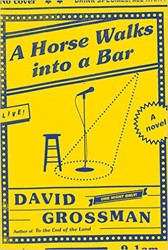In his introduction to The Poetry of Yehuda Amichai, Robert Alter, the editor of the volume and author of some of the translations it contains, strikes a note of frustration. He worries that in translation, Amichai’s poems lose the allusions, double meanings, and inventive sound play that characterize their Hebrew originals; translated into English, these richly allusive poems seem to focus merely on simple, daily life. Concluding that translating Amichai is worth the effort anyway, Alter hopes that “American readers will be able to discern at least some of that richness” of Amichai’s originals in this new volume. It’s a good thing Alter has given us the chance to try.
The collection contains the work of more than a dozen translators of Amichai’s work. In another editor’s hands, this might have created a cacophonous or incoherent final product, but under Alter’s ingenious arrangement the compilation beautifully focuses attention on Amichai’s unique voice. In addition to Alter’s introduction, the book contains an index of titles and first lines, as well as a section providing brief notes on many of the poems.
An enduring juxtaposition throughout Amichai’s poetry stems from the way his attention darts between sweeping spiritual or existential questions and commonplace images and sensations, like the hair on the back of a woman’s neck or an open refrigerator door. Some of Amichai’s most stunning lines move with lightning quickness between the quotidian and the transcendent. “God’s hand is in the world / like my mother’s hand in the guts of the slaughtered chicken / on Sabbath eve,” he writes in an early poem. Other tensions exist in Amichai’s work, too, such as the distinctly modern tone he retains even in the evocation of ages, peoples, or texts long past, and his resistance and attraction to the Orthodox Judaism in which he was raised. In a poem recasting the liturgy from the Days of Awe, Amichai composes:
Underneath the world, God lies stretched on his back,
always repairing, always things get out of whack.
I wanted to see him all, but I see now more
than the soles of his shoes and I’m sadder than I was before.
And that is his glory.
It is fascinating to trace Amichai’s range from long poems like “The Travels of the Last Benjamin of Tudela” and “Songs of Zion the Beautiful” to short lyrics like the numbered poems from his book Time, translated into English by Amichai and the British poet Ted Hughes. The final section of The Poetry of Yehuda Amichai contains the entirety of Amichai’s last book, Open Closed Open (1998), as translated by Chana Bloch and Chana Kronfeld. With their looser, more conversational style and long lines, these late poems differ in form and tone from Amichai’s previous work. However, as Amichai focuses with ever more intensity on the meanings of his life and death, the particular brilliance of his wisdom and vision endure.
Lucy Biederman is an assistant professor of creative writing at Heidelberg University in Tiffin, Ohio. Her first book, The Walmart Book of the Dead, won the 2017 Vine Leaves Press Vignette Award.





